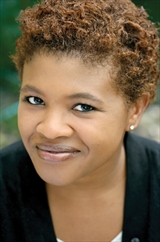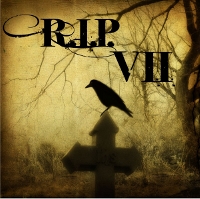 Attica Locke’s novel The Cutting Season is the story of Caren Gray, who manages the plantation Belle Vie on the shores of the Mississippi River, south of Baton Rouge, for its current owners, the Clancey family. Caren’s family and Clanceys have been entwined since the Civil War, when Caren’s ancestor Jason worked on the grounds of the plantation, cutting sugar cane, as the Clanceys’ ancestor William Tynan acted as overseer of the property. When the plantation’s owners left the plantation, it was seized by the federal government. William Tynan acquired the plantation in 1872. Jason went missing, and his ultimate fate remains a mystery. At the opening of the novel, Caren and the rest of the Belle Vie staff are preparing for another busy day at the plantation when Caren discovers the body of a young woman on the plantation grounds, near the old slave cabins. The woman turns out to be Inés Avalo, an undocumented field worker for Groveland Corporation, a large agriculture corporation that owns the fields of sugar cane that border the plantation. Caren finds herself inextricably involved in the resulting investigation, and the ghosts of the plantation’s past come back to haunt the present.
Attica Locke’s novel The Cutting Season is the story of Caren Gray, who manages the plantation Belle Vie on the shores of the Mississippi River, south of Baton Rouge, for its current owners, the Clancey family. Caren’s family and Clanceys have been entwined since the Civil War, when Caren’s ancestor Jason worked on the grounds of the plantation, cutting sugar cane, as the Clanceys’ ancestor William Tynan acted as overseer of the property. When the plantation’s owners left the plantation, it was seized by the federal government. William Tynan acquired the plantation in 1872. Jason went missing, and his ultimate fate remains a mystery. At the opening of the novel, Caren and the rest of the Belle Vie staff are preparing for another busy day at the plantation when Caren discovers the body of a young woman on the plantation grounds, near the old slave cabins. The woman turns out to be Inés Avalo, an undocumented field worker for Groveland Corporation, a large agriculture corporation that owns the fields of sugar cane that border the plantation. Caren finds herself inextricably involved in the resulting investigation, and the ghosts of the plantation’s past come back to haunt the present.
This novel is an interesting exploration of several issues: the legacy of slavery and injustice, the consequences of the growth of big agriculture, the tension between preserving history versus the economical needs of society. Caren Gray is a likable heroine, and the story moves at a good pace. The descriptions are vivid, and the atmosphere pure Southern gothic (in the best way). While the mystery alone was good, and I really wanted to keep turning pages to find out what would happen and whodunnit, I admit my favorite part of the novel was the historical aspect. I really wished that Caren had been more curious about her family history and the history of the plantation. She didn’t seem interested until looking into the past might help her understand present events. I don’t think I could have lived in a place like Belle Vie, particularly knowing my family had also lived there for generations, without being more curious. I’m not sure I found all of Caren’s connections plausible—her daughter’s father works in the Obama administration—but it did make an interesting statement about the arc of race relations in our country since the Civil War. Hurricane Katrina’s impact on the state of Louisiana also makes a small but important impression on the events in the novel.
I was interested to discover that Locke was inspired to create Belle Vie after attending an interracial wedding at Oak Alley Plantation in Vacherie, Louisiana. The idea of such a marriage in that location provoked an emotional conflict in the author, who told NPR, “I felt this tear inside—there’s no way to not feel the beauty of it because it is so stunning. But it also kind of made my stomach turn, because of what it represented.”
Rating:




Full disclosure: The publisher provided me with a copy of this book in exchange for a fair and honest review.
Because of the general mystery and gothic elements, I’m counting this book toward the R.I.P. Challenge (even though it wasn’t on my original list of challenge books) and as the modern fiction selection for the Mixing it Up Challenge. I said I would make soap inspired by each book I read for the R.I.P. Challenge, so look for my Vanilla Sugar soap (including pics) inspired by the sugar cane fields around Belle Vie some time this weekend. It won’t be ready for at least four weeks after it’s made. Biography below courtesy of TLC Book Tours.
 About Attica Locke
About Attica Locke
Black Water Rising, Attica Locke’s first novel, was shortlisted for the prestigious Orange Prize in the UK in 2010. It was nominated for an Edgar Award, an NAACP Image Award, as well as a Los Angeles Times Book Prize and a Strand Magazine Critics Award. Black Water Rising was also a finalist for the Hurston-Wright Legacy Award.
Attica Locke has spent many years working as a screenwriter, penning movie and television scripts for Paramount, Warner Bros., Disney, Twentieth Century Fox, Jerry Bruckheimer Films, HBO, and Dreamworks. She was a fellow at the Sundance Institute’s Feature Filmmakers Lab and is a graduate of Northwestern University.
A native of Houston, Texas, Attica now lives in Los Angeles, California, with her husband and daughter. She is a member of the board of directors for the Library Foundation of Los Angeles. Most recently, she wrote the introduction for the UK publication of Ernest Gaines’s A Lesson Before Dying. Her second book, The Cutting Season, was published by HarperCollins / and Dennis Lehane in September 2012.
 Attica’s Tour Stops
Attica’s Tour Stops
Tuesday, September 18th: A Bookworm’s World
Wednesday, September 19th: Books and Movies
Thursday, September 20th: A Patchwork of Books
Monday, September 24th: No More Grumpy Bookseller
Tuesday, September 25th: Helen’s Book Blog
Wednesday, September 26th: Kahakai Kitchen
Thursday, September 27th: Dwell in Possibility
Tuesday, October 2nd: Drey’s Library
Wednesday, October 10th: The Blog of Lit Wits
Thursday, October 11th: Book Him Danno!
Friday, October 12th: The House of Crime and Mystery
Thursday, October 25th: Much Madness is Divinest Sense
TBD: Stephanie’s Written Word
TBD: In the Next Room
TBD: Psychotic State


I'm very excited to read The Cutting Season! I liked Locke's first book but it sometimes had too many things going on at once AND it was set in Texas, whereas this one will be her second, more mature novel and be set in my beautiful home state.
Yay, Jenny! I'm glad you are on the tour. FYI, because you left the first comment on this post, you are entitled to a free bar of my Vanilla Sugar Cane Soap when it's ready. I will email you in case you don't see this comment.
I'm really intrigued by the combination of history and mystery in this book – I can see how it would be a real page turner!
Thanks for being on the tour.
Thanks for having me! I liked this one.